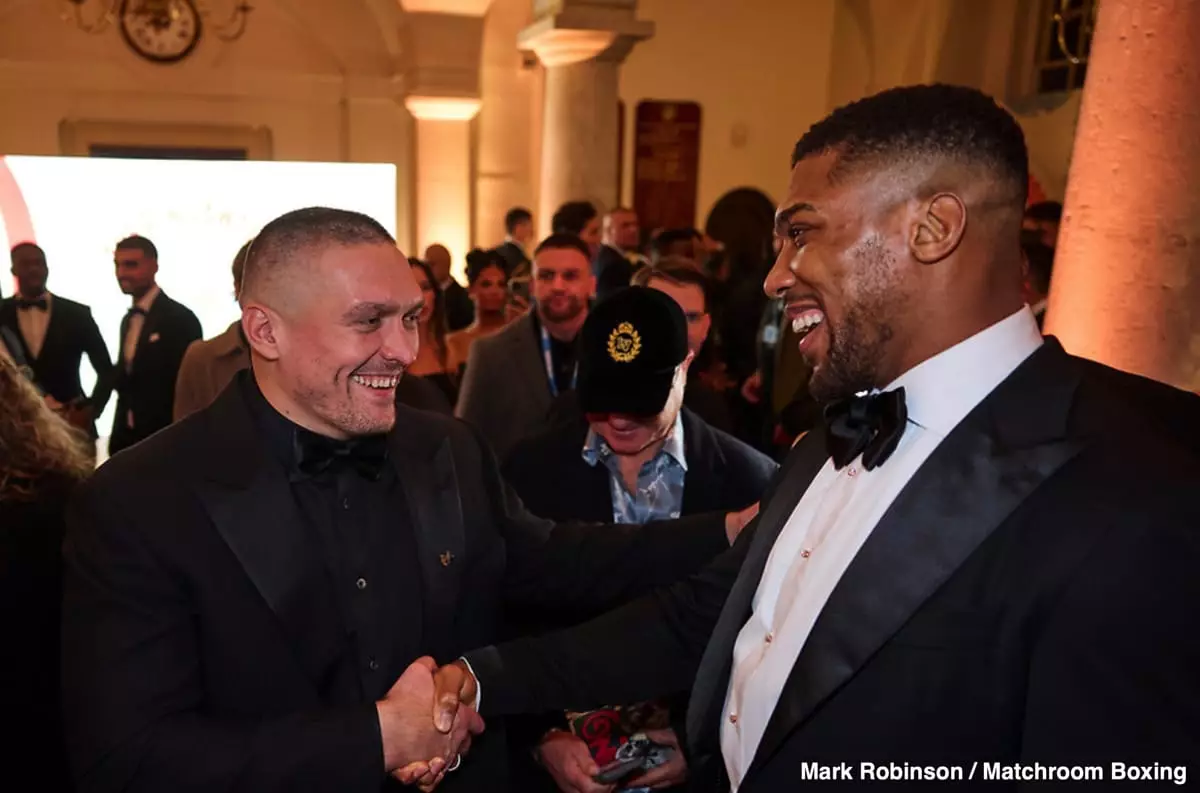The anticipated clash between heavyweight boxing titans Anthony Joshua and Tyson Fury has lingered like an unfulfilled promise in the minds of boxing fans. For over a decade, followers of the sport envisioned this iconic match—a collision of styles, legacies, and aspirations. However, the longer this showdown remains unrealized, the more it threatens to tarnish the reputations of both athletes. With each passing day, the question gnaws at fans: will Fury and Joshua ever step into the ring together? The uncertainty adds an additional layer of complexity to the narratives surrounding their careers.
Tyson Fury’s unexpected announcement of retirement following his defeat by Oleksandr Usyk has raised eyebrows. His record stands at an impressive 34 wins, 2 losses, and 1 draw, including 24 knockouts. Still, the question looms: what provoked such a drastic decision? In the aftermath of his loss, Fury’s mental state appears precarious; speculation abounds about whether the defeats have eroded his self-confidence. Such a scenario presents a double-edged sword; on one hand, it reflects a humane side of the ferocious athlete, while on the other, it underscores his vulnerability.
Despite Fury’s claim to walk away from the sport, Eddie Hearn, Joshua’s promoter, is cynical about the retirement’s authenticity. Hearn proposes that Fury’s departure from the ring may be more of a strategic maneuver to increase his bargaining power for a highly lucrative matchup with Joshua. The financial implications tied to such an event are staggering, and Hearn’s insights reinforce his perspective that money, above all, could coax Fury back to the ring.
Fury’s financial well-being is a significant factor in this equation. With an estimated worth of nearly $200 million, it begs the question: why would a man in such a secure position retire if the only match that could bring him back would be against a fellow heavyweight superstar? On the surface, leaving the sport after achieving substantial financial success appears rational. However, retiring from boxing while potentially leaving one’s legacy forever diminished may also haunt Fury in ways that money cannot rectify.
The psychological toll of a loss, however, is complex and often underestimated. Hearn’s observation about the impact of Usyk’s recent victory highlights just how deeply these losses can resonate with fighters. For both Joshua and Fury, finding the resolve to overcome setbacks and reenter the competitive atmosphere proves incredibly challenging. Hearn likens this transition to a withdrawal, a period of self-reflection in which fighters grapple with their identities as champions.
While Fury remains shrouded in uncertainty, Anthony Joshua’s trajectory appears somewhat more promising as he navigates his own post-defeat landscape. Hearn reports that although Joshua recently suffered a defeat, he is reclaiming his competitive spirit. This reinvigoration signifies a significant shift for Joshua, who has faced his own share of challenges. The narrative surrounding Joshua has branched out from mere accolades to a deeper exploration of resilience and vulnerability, making his potential comeback even more compelling as both a fighter and a human being.
Ultimately, boxing is not just about physical prowess; it is a mental battleground where unfinished business could lead to tarnished legacies. The anticipation surrounding the Fury vs. Joshua fight will linger as long as both fighters remain active, but uncertainty continues to shroud their fates. As fans, all we can do is watch, wait, and ponder whether the rivalries and aspirations in the world of heavyweight boxing will ever manifest into the monumental showdown we all envisioned.
Without a doubt, both fighters would shine anew if they chose to engage in a showdown. Yet, until then, the lingering questions of “what if” and “why not” keep fans invested in a narrative that, while delayed, still holds the potential to turn monumental should it ever come to fruition.

